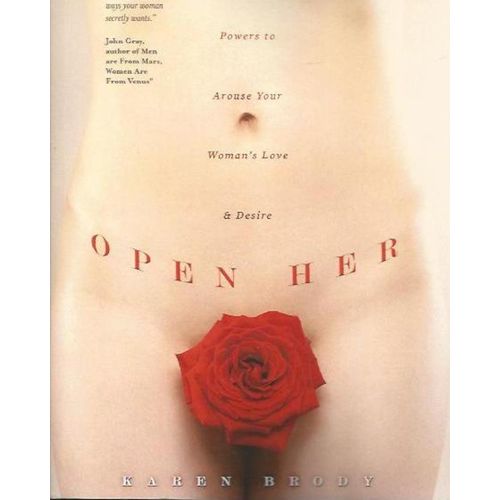A. What specific behaviours and actions from me feel most loving to you?
Marriage counsellor and author of The 5 Love Languages, Gary Chapman, believes there are five ways to express love emotionally. “Each person has a primary love language that we must learn to speak if we want that person to feel loved,” says Chapman. These include words of affirmation, acts of service, receiving gifts, quality time, and physical touch.
You can become aware of your love language by considering the actions and words from your partner that fill you with love and gratitude. Or you can notice your complaints to your partner, which reveal where you need more expressions of your love language.
B. How would you like me to verbally express my love?
If your love language is words of affirmation, verbal expressions are vital to feeling loved. But all of us need to hear words that are loving, tender, sexy, and affirming. Some people feel uncomfortable verbalizing their emotions, but real intimacy creates a safe bubble for the two of you to express your deepest feelings without fear or shame.
You might both agree that fewer words are better for the two of you. If you differ here, it will require some compromise and stretching to accommodate each other.
C. What kind of physical touch feels the most loving?
Touch is our first sense to develop as babies, and it’s the main way of showing love to a baby. We are wired to need touch. Physical affection is essential for the overall happiness and satisfaction of a romantic relationship. It solidifies our bonds as a couple. Studies have even shown that conflict is resolved more easily when there is more affection in the relationship.
Some people need and desire more touch than others. In fact, one of you might be highly affectionate while the other requires less touch. Find out from each other the specific kinds of touch (hugging, holding hands, backrubs, etc.) that makes your partner feel loved and cherished.
D. What makes you feel more loving toward me?
Find out from each other the behaviors, words, and actions you each practice that elicit feelings of love and affection from your partner. Something as simple as a kind comment, a well-timed smile, or the way your partner makes a cup of coffee for you, can feel like the most generous, beautiful, or admirable gesture. It is often the small things that we appreciate most and that make us feel valued and treasured. Share these with each other, both to clarify them for yourself and to let your partner know what you appreciate about them.
E. How can I ask for more love from you?
There will be times when one or both of you don’t feel loved as much you require or in the way you need to feel it. We want our partner to instinctively know what we need and to offer it without our having to ask. But that isn’t always possible or realistic. As close as you might be as a couple, neither of you are mind readers.
Sometimes you must ask for what you need. And it’s good to ask in a way that is not judgmental, critical, or demeaning. Find out from you partner how you can ask for more love or a different expression of love in a way that inspires him or her to offer more.
F. What might I say or do that would feel unloving to you?
You both know the obvious words or actions that would feel unloving to your partner. Unkindness, criticism, dishonesty, and indifference will make anyone feel unloved and hurt. Sometimes we say or do things unknowingly that trigger pain and anger in our partner. Perhaps we trigger old wounds from the past or cross a boundary we didn’t know existed. In an effort to keep peace, one partner might repress his or her feelings of hurt, but over time, keeping these feelings to oneself can cause resentment. Share with each other what your partner might do now or could do in the future to make you feel unloved.
G. How will I know when you need more love from me?
Sometimes we need more from our partner, but we aren’t really clear what is making us feel unloved, neglected, or taken for granted. Or maybe we feel uncomfortable being direct, so we use passive-aggressive behaviours that reveal our pain or anger. We all turn to these behaviours from time to time to communicate our feelings—whether through pouting, withdrawal, or subtle comments.
Examine your own behaviours in the past to see how you might be communicating your need for more love. Share these with your partner so they can recognize and identify them. Of course, direct communication is the best way to let your partner know you need more, but understanding these behaviours in each other opens the door for compassion and communication.
H. How often do you need to hear me say, “I love you”? Those three little words are so powerful.
For some people, hearing those words on a daily basis is as essential as water in a desert. A verbal expression of your partner’s feelings makes you feel secure, acknowledged, and valued. Other people don’t need to hear it as often. They know through their partner’s actions and presence that they are loved.
One of you might feel uncomfortable or silly saying the words regularly, while the other might sprinkle them throughout daily conversation. How often does your partner need to hear them from you? Be willing to offer these words as often as desired.
I. What does unconditional love mean to you?
Unconditional love is the ability to love the other person as he or she is in their essence. If you have fallen in love with this person and want to build a lasting relationship, then you must view him or her as a unique individual—not as an extension of yourself. But what does this mean in the dynamic of your particular relationship? How do you both view unconditional love, and how do you think it should be expressed within your marriage or connection?
J. How can we rekindle love when we see signs of apathy or distance?
Apathy and disconnection in the relationship can often creep up on a couple. When life gets busy with work, children, and other distractions, we might spend less time together, communicate less frequently, and feel anger or resentment that stifles intimacy. Maybe you are feeling some of this now. Even if you aren’t, you need to protect your relationship from it. Work together to identify the first signs of distance between you, and talk about a plan for reconnecting should this happen.
Follow-up: Are there any behaviour adjustments you’d like to request from your partner related to feeling loved? What specific action steps will you both take to help your partner feel more loved? Write these down and determine how and when you will initiate these changes or actions
RELATED POSTS
Time
Together and Alone in a Relationship
Spiritual Life and
Values on a Relationship
Sex and Affection
in a Relationship
Respect
and Kindness in a Relationship.
Personal
Habits in a Relationship
Personal
Boundaries in a Relationship
Past
Wounds from a Relationship
Health
and Fitness for Couples
Extended Family and
Relationship
Emotional Needs in
a Relationship
Emotional Intimacy
in a Relationship
Disagreements and
Differences in a Relationship
Communication
in a Relationship.
Children
and Parenting in a Relationship
Around the Web





































